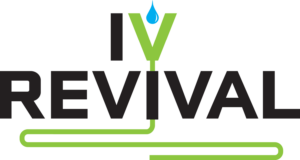Dehydration and heat stroke are two very common ailments in Arizona, especially during the summer in the Phoenix Valley. Both can be prevented and spotted with little training, and both can be life-threatening if you’re not prepared to handle them. That’s why today, we at IV Revival will be going over the signs of dehydration and heat exhaustion.
What is Dehydration?
Dehydration can be a serious condition if you’re not careful. It’s your body’s way of telling you that it needs more fluids, fast. It often occurs when you lose more water than you take in, such as when you’re drinking or hungover, or hiking in extreme heat. Side effects can include headaches, nausea, dizziness, fatigue, vomiting, and fever.
Children and people over the age of 60 are particularly susceptible to dehydration.
What causes Dehydration?
Under normal circumstances, dehydration is caused by losing too much water through common bodily functions such as sweating or going to the bathroom.
It also happens if an individual is overexposed to the sun and not drinking enough water. This is caused when the body loses water content and essential body salts, such as sodium and potassium.
Occasionally, dehydration can be caused by medicines, such as diuretics. These deplete body fluids and electrolytes. Whatever the cause, dehydration should be treated as soon as possible.
Treatment for Dehydration
In cases of mild dehydration in adults, all you’ll need to do is rehydrate. Drink cool water (not ice cold so you don’t shock your body), and snack on trail mix, granola bars, or fruit, to help boost your electrolytes. You can also drink sports drinks, though you should sip on water as well to help fully hydrate your system.
For moderate dehydration, intravenous (IV) fluids may be needed. We recommend contacting a hospital if you suspect you or your friend is exhibiting symptoms of moderate dehydration.
If caught early enough, simple rehydration may be effective. Cases of serious dehydration should be treated as a medical emergency, and hospitalization, along with intravenous fluids, is necessary. Immediate action should be taken.
Preventing Dehydration
Take the following precautionary measures to avoid dehydration:
-
Drink plenty of fluids, especially when working or playing in the sun.
-
Make sure you are taking in more fluid than you are losing.
-
Try to schedule physical outdoor activities for the cooler parts of the day.
-
Drink appropriate sports drinks to help maintain electrolyte balance.
What is Heat Exhaustion?
Firstly, heat exhaustion and dehydration are not the same thing, despite the overlap in causes and symptoms. Heat exhaustion is when your body is overheating. It can cause symptoms such as excessive sweating, a rapid pulse, heat cramps, dizziness, fainting spells, and more. Without treatment, heat exhaustion can lead to heat stroke.
If you start cramping, do not push yourself! This is usually the first noticeable sign of heat exhaustion. You usually can treat heat cramps by drinking fluids or sports drinks containing electrolytes, getting into cooler temperatures, such as an air-conditioned or shaded place, and resting.
What Causes Heat Stroke?
Heat stroke is caused when your body fails to maintain and regulate your internal core temperature, which for most healthy adults is between 97 and 98 degrees.
Causes of heat exhaustion include exposure to high temperatures, particularly when combined with high humidity, and strenuous physical activity. Your body will try to cool itself through sweat, but this method may not be efficient enough in the high temperatures and thus can lead to heat exhaustion.
Besides hot weather and strenuous activity, other causes of heat exhaustion include:
-
Dehydration, which reduces your body’s ability to sweat and maintain a normal temperature
-
Alcohol use, which can affect your body’s ability to regulate your temperature
-
Overdressing, particularly in clothes that don’t allow sweat to evaporate easily
Am I At Risk for Heat Exhaustion?
Anyone can develop heat exhaustion, but certain factors increase your sensitivity to heat, such as:
- Your age — children younger than 4 and adults older than 65 are more susceptible to heat exhaustion
- Taking medications for high blood pressure and heart problems, or taking antihistamines, tranquilizers, or antipsychotics
- Obesity.
- Sudden temperature changes
- A high heat index
How to Prevent Heat Exhaustion
You can take a number of precautions to prevent heat exhaustion and other heat-related illnesses.
You can wear loose fitting and breathable clothing, protect yourself against sunburn by using sunscreen and wearing a hat, drink plenty of fluids, avoid staying in a parked car for too long in the hot sun, and take it easy during the hottest part of the day.
It also helps to get acclimated to the heat and your chosen level of exercise. Those who are not used to hot weather are especially susceptible to heat-related illness. It can take several weeks for your body to adjust to hot weather.
Finally, be cautious if you’re at increased risk. If you are worried about heat exhaustion or dehydration, talk with your healthcare professional before you plan a hike in the summer or change up your exercise regime.
